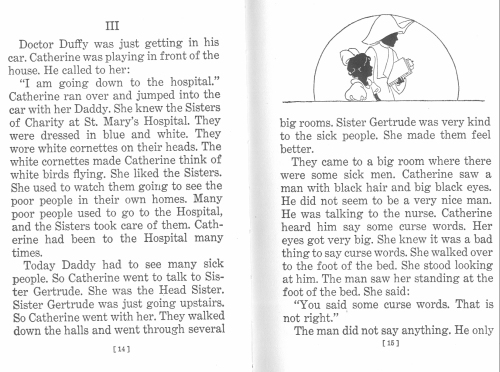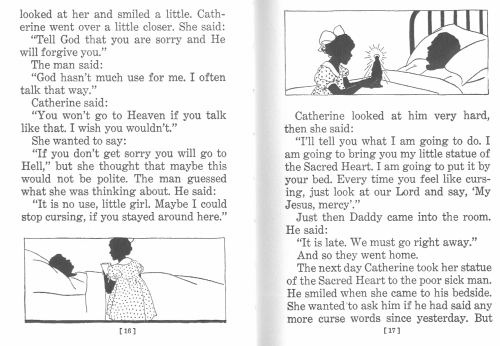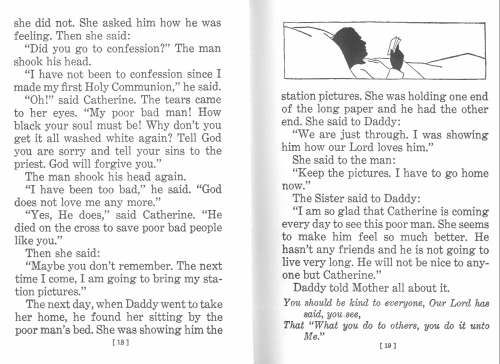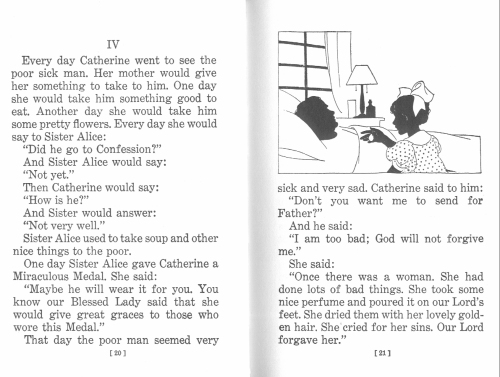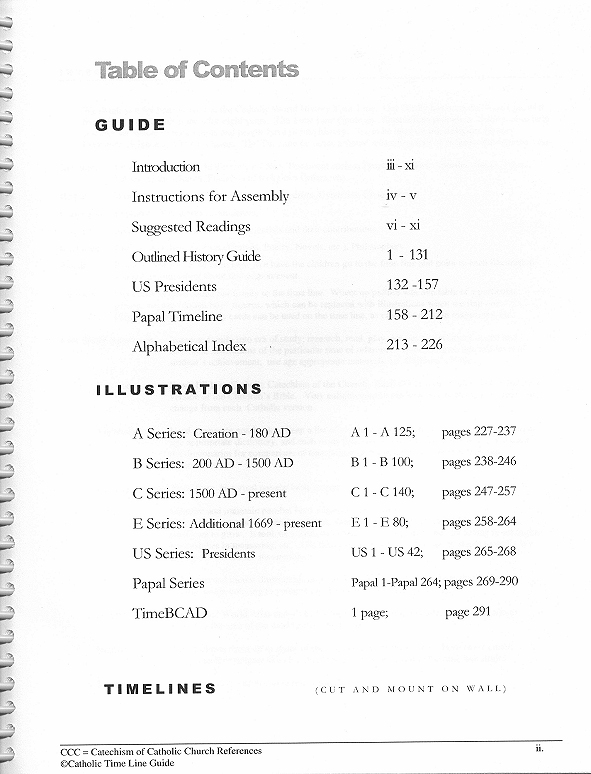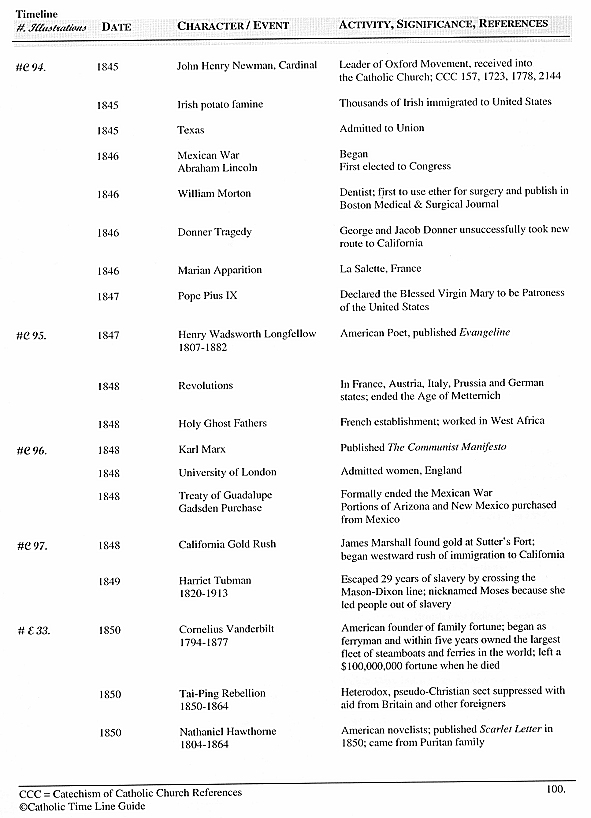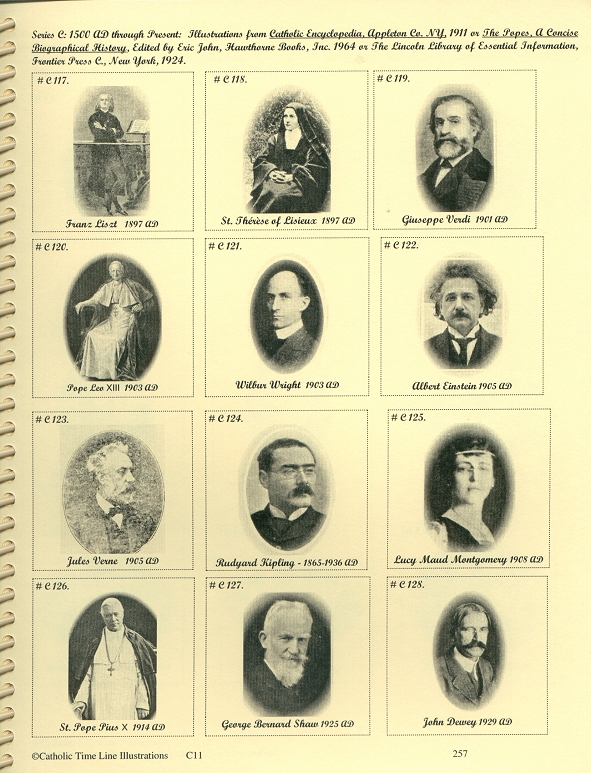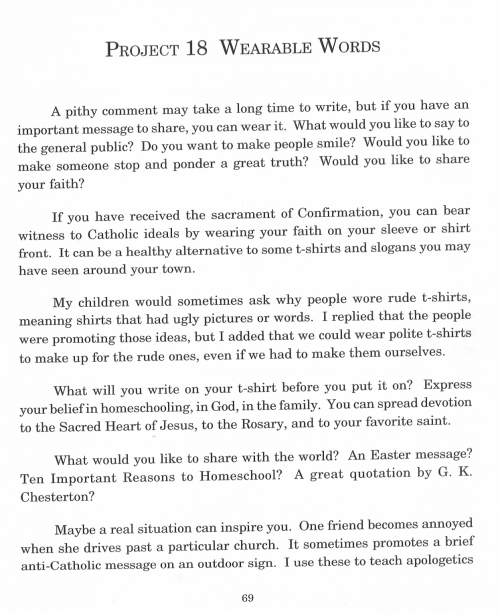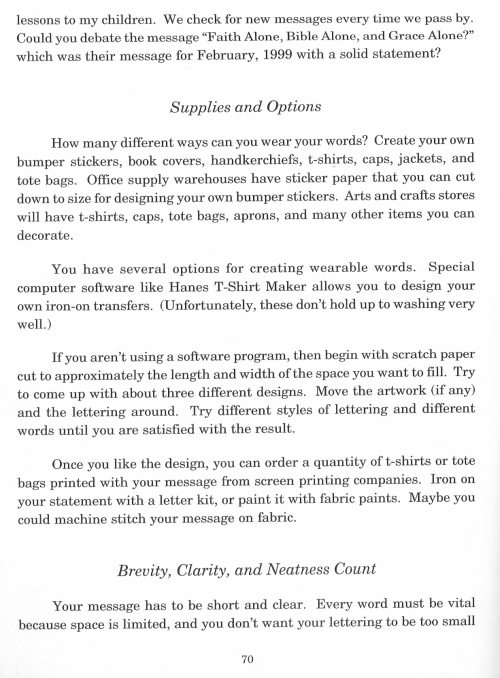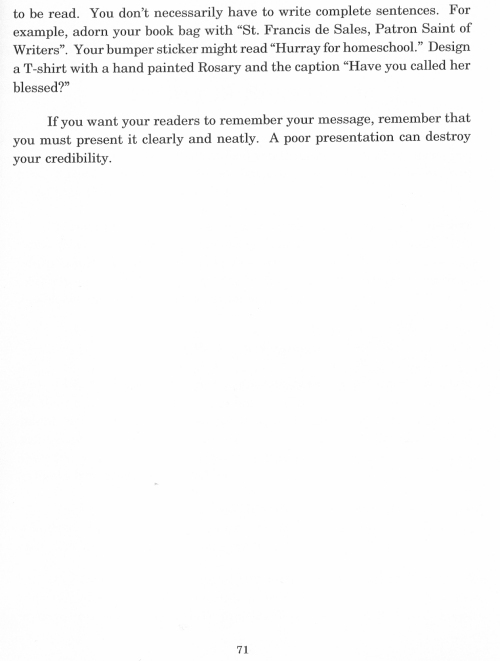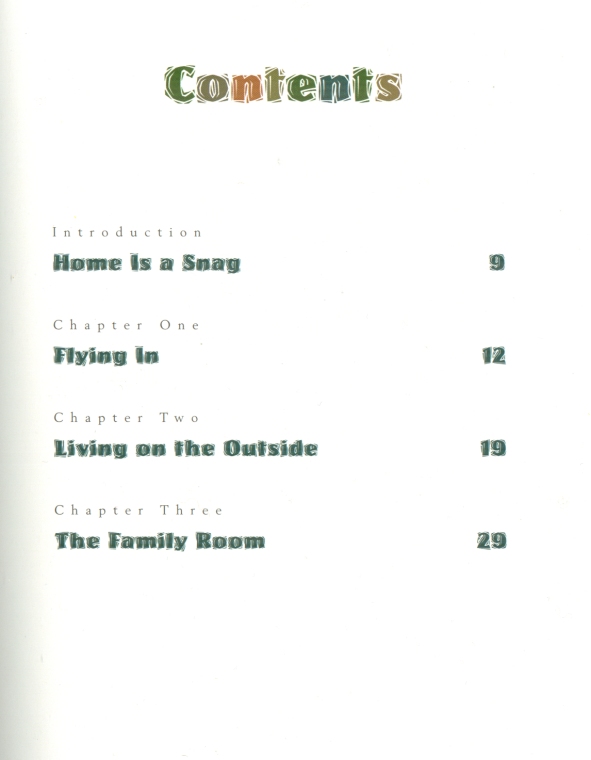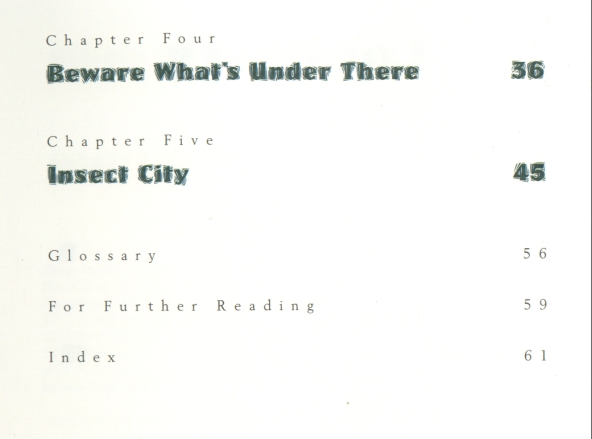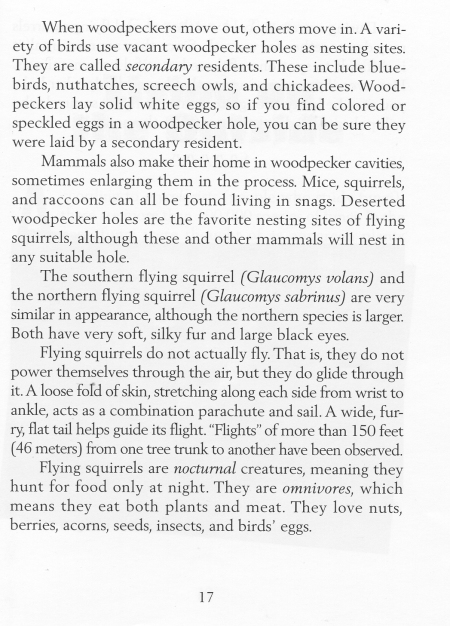Introduction
Designing Your Own K-12 Classical Curriculum
WHEN I BEGAN homeschooling fourteen years ago, I read many "how to" books and articles. One of the articles was "The Lost Tools of Learning", by Dorothy Sayers. It was very impressive. The most impressive of the many things Miss Sayers said was that the goal of education should be to teach children how to think; we want them to learn the art of learning. Then they will be equipped for life; whether or not they learn all the subjects possible in school, they will be able to learn any subject when it becomes necessary or desirable, if they know how to learn.
In fact, she goes on to say, learning subjects in school is of very secondary importance. What matters is the method of learning. Miss Sayers then directs our attention to the Trivium and Quadrivium of a classical education.
When I read this, I agreed immediately and wholeheartedly with what she said about learning the art of learning. But I was not clear enough about teaching or the development of children to understand how the method of the Trivium should fit into my curriculum. I set aside, you might say "lost", the "Lost Tools ofLeaming" and proceeded to experiment on my six children, particularly my oldest child, and the children of some (rash) friends and neighbors. You will be relieved to know that my three oldest children, at any rate, have survived. Two of them are presently attending Thomas Aquinas College, where my eldest daughter graduated this spring!
My experiments were surprisingly fruitful. I began to write various grade-level curricula and share them with friends. Eventually I was asked to give conference talks to help others design their own curricula. While preparing for those talks, I reread "The Lost Tools of Learning" and discovered that the particular advice of Miss Sayers with respect to the Trivium of the classical curriculum was exactly what I had stumbled on by trial and error! What she suggests from an understanding of medieval education I came to by using what worked. In this book I hope to introduce you to a method that will help you construct your own classical curriculum, a curriculum that will teach your children how to think and not just accumulate facts. It will not be something you accomplish all at once, but this method will guide you in incorporating different skills and courses at appropriate ages. The method first involves thinking clearly and in some detail about what you want to achieve in the education of your children.
The first step in constructing your curriculum is to do some background reading. There are a number of books available that will help you clarify what you want to achieve educationally in your homeschool. "The Lost Tools of Learning" should certainly be read. For the Children's Sake, by Susan Schaeffer Macaulay, is very good. I recommend it highly to all parents, not only to homeschoolers. It presents a view of what education is and how to achieve it in away that will encourage lifelong learning. Homeschooling lor Excellence, by Micki and David Colfax, gives you a good look at a successful homeschool family and much valuable advice. Raymond Moore's books remind one that in some cases late is better than early, and Marva Collins' book Marva Collins' Way tells of her experiences teaching children; it also gives great lists of materials that she thinks work well. Catholic Education: Homeward Bound, by Kimberly Hahn and Mary Hasson, and Catholic Homeschooling, by Mary Kay Clark, are specifically Catholic books on homeschooling in general. All of these books are useful, not only for general information, but also because they give some knowledge of methods and list materials that have been found to work with children.
The second step is to acquire lists of other people's curricula. I recommend the curriculum lists of Seton Home Study, Our Lady of the Rosary, Kolbe Academy, Calvert Correspondence Course, and your own state's general requirements. Designing your own curriculum involves seeing what other people have used successfully.
Once you have acquired all this information, you will need to reduce it from a potential to an actual curriculum. This is where you use the background reading you have done. Think about the cause of causes, the end. Ask yourself; "What do I want for my children? What do I want them to achieve academically? Where are their interests? And what are their capabilities?"
This is the heart of designing your own curriculum, classical or otherwise. You need to be explicit about the ends you want to achieve. I would like to tell you about my own goals so that you can see an example of ow defining those goals will direct your choice of curriculum, giving you a plan to be implemented over the course of a number of years. Perhaps some of my reflections will also help you in more particular ways, by suggesting materials or methods that will be useful to you in designing the curriculum that fits your particular homeschooling situation.
While I was designing my curriculum I knew that I wanted ultimately what we all want, the eternal salvation of my children. Academically I wanted a truly Catholic intellectual formation. I hoped to instill a lifelong love of learning and to give my children the tools to pursue that learning.
More proximately, I wanted my children to be able to go to an academically excellent Catholic college and do well there. The ultimate end would more likely be achieved this way. Further, I was concerned that they receive a classical education at college, one that would incorporate the seven liberal arts and the disciplines to which they are ordered, philosophy and theology .This kind of education is discussed in the essay by Dorothy Sayers that I mentioned earlier, "The Lost Tools of Learning".
There was a time when the excellence of liberal arts education was generally recognized; it was the education every informed person in ti Western civilization received. Even now in homeschooling circles such an education is usually aimed for, sometimes under the title of liberal arts and sometimes not. Whatever it is called, what is desired is that each child be formed well in all the most important intellectual areas. Most of us want our children to study mathematics and English, science and religion, whatever our own special interests might be. I will talk in more detail about what is involved in such an education because I think most of us use something like this in detemrining our educational goals. Most proximately, I wanted to teach the appropriate disciplines at the right ages for each child to reap the maximum benefit.
In the light of the ultimate end, I knew that first importance must be given to spiritual formation. This would mean that the Church would have to be at the center of our lives as a family. We would go to daily Mass whenever possible, say the family Rosary and talk about the faith and its practical applications on a daily basis. While this is not an aca- demic goal, it has an academic corollary .Our curriculum would always, at all levels, teach the doctrine of the faith clearly. After all, you cannot apply what you do not know.
Further, I wanted to instill an attitude about learning that would lead to real interest in all parts and aspects of God's creation. I wanted my children to think that a new book or a new subject or a new project would be likely to be interesting. And I wanted them to get the best out of their scholastic endeavors, even when the material or the teaching might have some flaws. I thought, and I still think, that the best way to achieve this is to have that attitude yourself. Talk to your children about their academic work. Conversation with you is the most formative part of their intellectual life.
I think our family has succeeded in this. I do not mean that my children always think that this or that particular project is the most fun they could possibly be having. What they do think is that it is worthwhile, something they are glad to have done when it is finished, because they learned from it.
A case in point comes to mind. Not long ago, I had my ninth graders read The Red Badge of Courage, by Stephen Crane. It is an introspective book and not all that easy to read. There was a certain amount of complaining about the book as we read and discussed it. However, when we finished the book, I asked my two children what they thought about using it for their siblings. "Was it worth reading?" Both children said yes. My son said he learned something about how to deal with fear that he was glad to know, and my daughter said she found the war discussions interesting! (It is not the kind of thing she ordinarily reads.) I was happy that even though it was not simply enjoyable for them, they were able to get something valuable from reading and discussing it.
I also knew I wanted a curriculum that would demand a certain amount of rigor, something challenging enough to be stimulating. At the same time I knew that I would have to be careful to ensure some success for each child. Children, like all the res of us, do not like to do what they are not good at.
And finally, I knew that the moral virtues would have to become habits, both in me and in the children, because one has to be disciplined and docile, obedient and willing, to learn well. I found that out in college, when I spent most of my first year learning how to study and learning to get my work done on time. For this reason I do have some deadlines for the children's work, usually for bigger projects like papers. Unlike some teachers, however, I will accept a reasonable excuse, like "But, Mom, while you were writing your talk, I did laundry and made dinner."
Which brings me to the next consideration. It seems to me likely that good Catholic colleges resemble one another in essentials; if a student is well prepared for one, he ought to be well prepared for the others. The curriculum at such a college should include those studies that are called (or used to be called) "general requirements", or liberal arts.
Traditionally, liberal arts education meant the education of a free man. A free man was understood to be one who could direct his own life (and the common life of the community) and live a life of intrinsic and specifically human value (as opposed to the life of an animal or an instrument). The seven liberal arts were the introduction to such an education. These arts comprised the "Trivium": grammar, rhetoric and logic, and the "Quadrivium": arithmetic, geometry, music, astronomy. These arts are ordered to the disciplines of philosophy and theology . Such an education is devoted to what is intrinsically worth knowing, for a man and for a Christian, whatever his way of life may be. Thus, to prepare for such an academic program is to prepare for any further leaming one may intend and to prepare for a reasonable and Christian life for those who do not continue on to college.
Any particular interests that a child has can be taken into account as well. That can be done either by emphasizing the area of interest, if it is one of the subjects that ordinarily falls into such a general educational plan, or by adding a somewhat more specialized field. Two of my daughters like history very much, and so I allow them to read more in that area and do papers that deal with some aspect of history .In other words, for them I emphasize something that we would be doing anyway. My oldest son, on the other hand, enjoys computers. That wasn't originally part of my curriculum plan. Because of his interest, however, we do include some time with the computer in his daily work.
In general our curriculum has been designed with a liberal arts education in mind. Miss Sayers, in "The Lost Tools of Learning", directs our attention particularly to the arts of the Trivium: grammar, logic and rhetoric. She points out that two, at any rate, of these subjects are not subjects at all. They are methods of dealing with subjects. Grammar is a subject, in the sense that it means learning about a language, but language is a medium in which thought is expressed. In fact, the whole of the Trivium is intended to teach the tools of learning: methods of thinking, arguing and expressing one's conclusions that will be applied to subjects. Now there must be subjects for these methods to be practiced upon. One cannot learn grammar without learning a language, or learn to argue and orate without arguing and orating about something. But the subjects are of secondary importance until the tools of learning have been refined.
The grammatical stage of learning is the first that follows the acquisition of the basic skills of reading, writing and arithmetic. Once your child can do those, his attention should be turned to the "grammar" of each subject he studies. This entails using his faculties for observation and memory in each subject. Studying the grammar of language means learning an inflected language like Latin and practicing the chants. "Amo, amas, amat" is much like "eeny, meeny, miney, mo". This is what children do naturally at this stage; channel it into something constructive. In the other subjects, memorize. Train the imagination to retain information: fill the memory with a store of rich and varied images.
The next stage of the Trivium, the dialectical or logical, involves the discursive reason. The time to move into this level is when the student is able to appreciate and construct an intellectual argument. It seems to occur at about seventh grade for most children. At this point discussion and analysis become the heart of the curriculum.
The last stage of the Trivium is the rhetorical. This occurs somewhere around ninth grade and overlaps with the dialectical on one end and the movement to subjects as subjects on the other. It seems to be characterized in the student both by the discovery that he needs to know more and by a resulting interest in and capacity for acquiring information. There is a new enjoyment of the poetical in literature, music and art. This combination of information and poetry gives the child an ability to express hirnself in elegant and persuasive language. In other words, he will need to have writing at the center of his curriculum.
In all three of these stages of the Trivium the student must have matter to work upon. The subjects should be chosen with a view to the disciplines of the liberal arts curriculum. In some cases this means doing what disposes the student to these studies; in other cases, it means making a beginning in them. These are the kinds of considerations you make in setting up your curriculum. You say, "I want my children eventually to have this kind of formation. What needs to be done to achieve it? Do I start teaching the subject itself now, or do I do something that will enable them to do that subject well later on?"
In terms of disposing children to these disciplines, there are two ways to go. One is to remove the obstacles to learning. Concentration on areas that might be trouble spots, such as grammar, music and mathematics, would be a good idea. Many who are otherwise good students have trouble with these subjects in college.
Even if one is not planning on a program of schooling that includes Latin in college, there is still a case to be made for studying Latin. Latin is an inflected language, where the endings of the words clearly indicate their function in a sentence. This means that the nature of the parts of speech is seen more clearly in Latin than in English. For this reason it is a good language to use in teaching grammar. It makes English grammar easier to understand.
With mathematics, the children should be skilled enough in all the ordinary operations so that they are able simply to concentrate on what is specifically new and challenging in their college classes. In a traditional liberal arts program, Euclidean geometry is studied. It is a theoretical discipline, well suited to the awakening intellectual power of a new college student. It is better to be able to make these universal considerations unhindered by purely technical difficulties.
Similarly, mathematical astronomy will proceed more smoothly if the operations of mathematics are second nature. For these reasons, our curriculum places emphasis on consistent application of mathematical skills, and I insist every problem be reworked until it is right.
Preparation for the study of music is twofold. Mathematical ratios form much of the basis for discussion in the discipline. Clearly, mathematics is a preparation for this class. But so is the practical knowledge of how to read notes and tell what key a piece of music is in. Therefore, our curriculum includes some music. We use workbooks like Music Reading, Ready to Use Activities Kit, by Loretta Mitchell, and play recorder and piano. Also, because music is a wonderful thing in itself and something children will appreciate if exposed to, we always include music appreciation in the curriculum. There is a nice program called The Music Masters series.
Since there are a number of papers required regularly in every college, writing skills are important. It is better to learn these early in one's educational career and then be able to concentrate on the subject matter of one's paper, not having difficulties because of inadequate powers of expression. To acquire facility in writing, the important thing, it seems to me, is that the children write regularly and at some length. In the light of this consideration, I have chosen an area each year in school that involves extensive writing. It is usually religion or history. In the high school years, writing becomes the heart of the curriculum, but for that to happen there should be writing practice from the beginning. I have found that book reports make my children unhappy and tend to deaden their interest in the book they have read, whereas a retelling of it, as for example, a description of the encounter of David and Goliath from the Philistine's point of view, or the story of St. Louis' crusade, is exciting.
Communication skills are very important in college. One needs to be able to speak clearly as well as write clearly. This means that it is helpful to have lots of experience in discussion. This is an area where busy homeschooling moms with pleasant, competent children need to decide firmly to do what is time consuming but very important. Even if your children are able to go off, read their assignments and do their lessons without your help, it is important that they converse with you, important that you guide their understanding of the part of reality they encounter in their reading.
I use both Scripture readings and literature readings for discussion, and I encourage the children to state and defend their answers to the questions I ask. This is easier for them if their reading has been reflective. If they ask themselves some questions as they move through the book, anticipating a discussion where they will need to be able to present the heart of the position, they will be much better readers. I have found that having young children retell the story, and having older children prepare to discuss it, helps to produce reflective reading. It also helps them do better with factual questions.
The other way of preparing for the education at college involves the two disciplines to which the seven liberal arts are ordered. Our curriculum includes certain kinds of background information that will make the theology courses more immediately knowable, allowing the children to get involved right away in the heart of the matter. I have found that the Baltimore Catechism is excellent preparation for theology because it is St. Thomas distilled. Pick a topic, see what the Baltimore Catechism says, and then compare it with the relevant article in the Summa Theologiae. St. Thomas is much more complete, but the basic position is in the catechism. Therefore, it seems to me that using the Baltimore Catechism in the early years makes St. Thomas much easier. One is already familiar with the terms and the general outline of the argument. And the format in the catechism is perfect for little children, who can memorize so much more easily than we can. Once learned, it stays with them for life.
Bishop John Myers said in a recent article, "Memorization of this sort allows a child to have a permanent space in mind and heart set aside for and dedicated to the things of God and of the Church. These essential elements are permanent acquisitions for the child, to refer to wherever he goes. He or she can retrieve them and ponder them from different aspects and in different life settings." Another preparation for theology is a familiarity with Sacred Scripture. St. Thomas and the other Fathers and Doctors of the Church most often use one part of Scripture to clarify and explain what is in another. All their theological works are full of scriptural references. So I have included Sacred Scripture in my curriculum at nearly every level.
And lastly, the more advanced discussions of Catholic doctrine and practice found in books like Of Sacraments and Sacrifice, by Fr. Clifford Howell, and the Fr. John Laux high school series provide a familiarity with the context within which theology must be understood.
Another discipline that I think you can prepare for in some measure is philosophy. Two different approaches help. Some acquaintance with philosophic terms is useful. The Seton Junior and Senior High School Religion courses do this. The other, and more important approach is to provide your child with life experience.
To do philosophy well you need to have the beginning of wisdom, which enables you to make good judgments. Experience is essential and can be gained directly, in the obvious manner of doing many (appropriate) things. This would include natural history. Science has always seemed to me something to be learned in detail later on; in the early years we emphasize natural history. This is a good area for field trips; both the zoo and natural history museums are a pleasant change from school books.
Philosophy can also be prepraed for indirectly by reading good books, both historical and fictional. In our curriculum I have included many books and allowed large chunks of time for reading. There are a number of resources for book lists of varying degrees of excellence. On is Honey for a Child's Heart, by Gladys Hunt, and another is Catholic Authors, both the 4-sight and Crown editions. A Mother's List of Books, by Theresa Fagan, is also very helpful. More specifically hitsorical texts can be found in Books Children Love by Elizabeth Wilson and the short but first-rate journal In Review: Living Books Past and Present, published by Bethlehem Books. The catalogue of Greenleaf Press also has many interesting texts in this field.
Through an examination of the ultimate end I desired for my children's education, and the more particular end of going to college, a curriculum began to take shape. It would include Latin and English grammar, mathematics, literature, history, music, some philosophy, the Baltimore Catechism, and Sacred Scripture.
We woudl have discussions, and I would endeavor to infuse those discussions with the sense of wonder and reverence for truth that could shape the attitudes of my children toward learning in general. I would require regular papers on subjects that would really be of interest.
Not all of these subjects would be covered every year, and not all would be covered in the same depth, but these would be the disciplines I would incorporate in my program. I would remember the method of the Trivium at each appropriate stage. With such a general plan we could make what we did do each year count int he overall intellectual formation of the children. You do not have to be so anxious abuot finishing each book (though it is certainly good to do so if possible) if you know that all of your efforts are coordintaed and directed to a goal that is larger than accumulated knowledge in an individual subject.
You can see that my reflections on the ends I wanted to achieve guided my choice of subjects and methods. There were still further particular considerations to be made about what level was right for each subject and what method was appropriate. Those judgments can be made by examining the curriculum lists I mentioned earlier and by a certain amount of trial and error.
Additionally, you will need to consider state requirements. To acquire your own state's general requirements, write to your state's department of education. Consult your telephone book. If the department is not listed, you can call your local school district or the library for the address.
There was substantial general agreement among those lists with respect to what subjects were to be taught at what level. I would like to hit the highlights, without going into too much detail.
Virtually all the lists included mathematics, reading, memorization, beginning writing skills and formative stories in the first three grades. This would be the very beginning of the future facility in mathematics, language arts, philosophy and theology that we wanted to achieve. I am inclined to the view that it is better to learn a little really well than a great deal superficially. For this reason I decided to concentrate on a thorough basic formation.
In kindergarten we try to become thoroughly familiar with numbers. We use dominoes, dot-to-dot workbooks, the hundreds chart and even a computer mathematics game or two. I use the A Beka math program in the earliest grades. They have worked very well for us, and my children generally find themselves ready to do the Saxon 65 in fourth grade. I think this is because of the solid, sequential presentation of basic operations. Nevertheless, there are other good mathematics programs, some emphasizing a more manipulative approach, using Cuisenaire rods, for example. Some children need to handle materials in order to learn; others can reason abstractly. Find out which kind of learner you are dealing with, and use the appropriate kind of program. But whatever approach you choose, make sure the operations become second nature.
For beginning reading, in kindergarten, I use Teach Your Child to Read in 100 Easy Lessons, by Engelmann, Haddox and Bruner, for about half of the book and then move on to Sound Beginnings, by Julia Fogassy, or The Writing Road to Reading, by Romalda Spalding. The main point about what you select for reading is that it be phonetic in its approach. Using phonics will allow the child to read much more difficult material at an earlier age; It also helps with spelling and Latin. My husband, who has taught Latin for many years, says that all students in his experience who have had trouble reading and pronouncing Latin had been taught to read by the whole word method. He has made an informal study of the subject. When someone consistendy stumbles over Latin pronunciation and his spelling is "original", my husband discreetly asks what kind of reading instruction he has had. In such a case, the answer has never been phonics.
This early schooling is the stage Dorothy Sayers refers to as the "poll-parrot" stage, and it is a good time to begin the memorization of the questions and answers of the catechism. It is also a wonderful opportunity to introduce poetry .We pick a poem, work on it, say it for an obliging friend or relative, and then write it in a notebook reserved exclusively for that purpose. The child may illustrate it or not, depending on his inclination. We usually start with the poems of Robert Louis Stevenson, because they are so accessible to children. Then we move on to more difficult material. Two books, Favorite Poems Old and New and The Harp and Laurel Wreath: Poetry and Dictation for the Classical Curriculum, have good collections of poetry .
The poetry notebook is great fun as the children get older, because they have a book of their own making, filled with the poems they learned all through grade school, and they love it. It also helps them review without coercion, because they get to reminiscing. I leave those notebooks in an accessible place, and every so often one of the children will pick a notebook up and leaf through it. They say, "Oh, I really liked this poem. Do you remember it?" And in that way they review the poems.
It is at this early stage that the child's broadest views of the world are being worked out. We all want our children to be clear about the difference between good and evil, truth and falsity .I think the things you pick to read to them and that you pick for their early reading are very important for this reason. Fairy tales, where there are clearly good guys and bad guys, are good for children. Books like The Outlaws of Ravenhurst, by S. Mary Wallace, instill a healthy respect for the Eucharist. Tales of King Arthur and his knights teach concepts of nobility and sacrifice. Stories of the saints are very important in these formative years because they present the supernatural end as the most compelling motivation.
History in these first grades seems to me best taught in somewhat the same mode as literature. That is, use materials that emphasize heroism and individual accomplishment. Some of the books in the book lists I mentioned earlier are of this sort. Also, Stories of Great Americans for Little Americans, by Edward Eggleston, is very good. It deals with outstanding individuals and the difference their contributions made to the founding of our country.
We also read Bible stories in this early period. The Children's Bible (Golden Press) is an easy-to-understand version of this genre and has kept the integrity of the stories. Whatever you use, emphasizing the goodness of particular individuals is important.
As I said earlier, science has always seemed to me something best learned in detail later on. The early years should be spent developing a love of nature. The zoo and natural history museums, as well as neighborhood walks, will encourage areal interest in natural history .
I mentioned earlier that for writing we prefer to pick a subject area and concentrate on writing in that area, rather than have writing as a separate subject. We often do Bible history this way, retelling the story after reading it. This exercise seems to strengthen the children's ability to see the story as a whole and to remember it. They like to illustrate their stories, too.
In the middle years, fourth through seventh grade, the child becomes capable of mastering certain subjects and of coping with increasingly difficult material in others. All the lists I have looked at think that grammar should be taught with some rigor in this period. I myself find that sixth grade is the place to work intensely on grammar. Children seem to have matured enough at this point to enjoy parsing and diagramming, which are analytical skills.
Latin is also well suited to this stage. Here, too, it seems that mastery of the fundamentals is most important. Vocabulary and forms can be taught and memorized in fourth and fifth grades, using Memoria Press' Latina Christiana I. Another book, Basic Language Principles through Latin Background, by Ruth Wilson, works well in seventh grade. It consolidates English grammar from the year before and teaches the first conjugation and first and second declensions very clearly. In the earlier years there are some texts that prepare the student for the study of Latin. English from the Roots Up, by Joegil Lundquist, gives a background in both Latin and Greek roots. This text can be used in second or third grade and will be the beginning of a lifetime of interest in words.
With respect to religion in these middle years, I use a combination of things, all of which are ordered to those further goals I have already spoken about. Each year is divided into three parts: doctrine, Church history or Sacred Scripture, and lives of the saints. I continue to use the Baltimore Catechism, moving from the No.1, which I have used in first through third grades, one section per grade, to the No.2, which I use again one section per grade. In addition to the catechism, I use some form of Bible history: Bishop Knecht's Child's Bible History, or Fr. Ignatius Schuster's Bible History, or Sacred Scripture itself, with discussion questions of my own making. In fourth grade, the lives of the saints are also read and reported on, and in fifth grade I use the Faith and Life Catechism Credo: I Believe, which is excellent. In seventh grade I also use a Church history that all of my children have enjoyed, The Story of the Church, by Fr. George Johnson, Fr. Jerome Hannan and Sr. M. Dominica.
For writing in these middle years, the important thing, it seems to me, is that the children write regularly and at some length. Intermediate Language Lessons, by Emma Serl, and Learning Language Arts through Literature have some good ideas for creative writing. Retelling historical events has always been popular in my house. In sixth grade my oldest daughter wrote a history book that she greatly enjoyed, and she has kept it all these years. She read about different ancient civilizations and wrote down what she remembered in a notebook. She illustrated it with maps and made a cover for the front. That project made a major difference in her intellectual life. A friend's child decided to make a play about William the Conqueror. It was six pages, with many battle scenes. His whole family learned about that period of history from his writing effort. It matters more that there are some such writing exercises in your curriculum than that the children are always working on such a project. Pick a subject where you discern a lively interest and make that the focus of your writing curriculum.
Memorization at this stage can be more involved. Speeches from Shakespeare can be learned, and perhaps, with other homeschooling families, whole sections of Shakespeare's plays can be done. There is a book called Shakespeare in the Classroom: Plays for the Intermediate Grades, by Albert Cullum , that edits the plays while retaining the flavor and much of the language and makes it easy for a group of children to put on a Shakespeare play. If you are a purist, you can keep the original language, but use this book as a guideline for cutting down the action. My children recently participated in a production of A Midsummer Night's Dream, which was the joint effort of three homeschooling families. It was fun for them, and they still enjoy quoting from the play.
There is a good science textbook series available called Concepts and Challenges in Science. It has clear descriptions and an easy-to-follow format. A more hands-on approach is the Tops series. Each topic is covered by having the child do experiments involving only easily obtained materials. The unit on the balance is one of the more successful courses we have had. All of my older children are quite clear about the balance beam and how it works.
History is a subject that can be fascinating, or it can be deadly dull. Using a textbook with unit tests has a way of engaging the short-term memory and nothing else. What works better is reading a chapter in a history text and then reading other books, real books rather than text-books, that cover that period of history. Then the information seems to come alive and stay with you. Even in the later years, in high school, we have followed the same general procedure with history Books Children Love, by Elizabeth Wilson, and the issues of In Review, published by Bethlehem Books, are both good sources for books of this kind. Also the catalogue of Greenleaf Press has many important texts in this field. We acknowledge the cyclical nature of history teaching and study American history in third, fifth and ninth grades. In fourth grade we study the exploration of the New World. Sixth and seventh grades are given to ancient civilizations, with an emphasis on Greece and Rome. In high school we study ancient history again, in more depth, and European history , concentrating on England and Spain, since these are the two that most directly affect our country.
Ecce Romani is a series of books that incorporates the nature method of teaching Latin and analytic grammar, and it seems to work well at an eighth or ninth grade level. The text encourages learning the vocabulary from context as well as memorizing vocabulary lists. Seton Home Study offers a good Latin program, which I have used for my high school curriculum.
In the later years, we concentrate more on reading well. Our religion, literature, art and science classes all incorporate some discussion of more difficult points, retelling or making a synopsis of major issues, and some factual research-locating the place in the book where the author makes his point. It is in these subjects, about once a week for each, that I spend time with my older children. They do the preparation for the discussion on their own, and they do the other subjects they have on their own. I correct work and tests and discuss with them. I have always tried to work one-on-one with my children only in the areas where they need that kind of instruction.
I have a friend who homeschooled her oldest son through ninth grade. In tenth grade he went to a local high school. His mother watched him anxiously through the first week and then asked, "Josh, how is it?" He said, "It's so unbelievably easy. They tell you everything! I go to algebra class, and they say, 'Watch while I do this problem.' Then they put another one on the board and make sure you know how to do it. Then you do the rest of the problems in class, and they'll answer any questions. School was never so simple before." I think Josh's experience is probably typical for homeschoolers. They are used to working on their own, at least as older students, and figuring things out. They are more independent learners and do not need constant instruction. Our teaching role is more that of guidance and correction. In this role, you should arouse interest in intellectual subjects by selecting good materials. Good literature and challenging texts are your best allies. I have found that a number of the Seton Home Study courses in tenth through twelfth grades are of real help. One is not required to be a full-time student with Seton; one can just select the courses that seem useful.
We have found Seton's English programs for all three years to be outstanding. Their science courses are difficult but can be done. The Saxon mathematics can be done without their program, which simply consists of tests on the material. You can purchase the homeschool packet for the Saxon texts, along with the solution manuals, and do just as well on your own. As I mentioned earlier, Seton has a Latin program that we like, and it is nice to have someone else correcting the tests.
It is a good idea to meet the homeschoolers in your area. It is helpful to have the support of like-minded people. Often in talking over your successes and failures with others you will discover that your difficulty is a common one and, perhaps, that someone has discovered a solution. Or that your success is a solution to someone else's problem. In any case you will know you are not alone. The Catholic Home Educator is compiling a list of homeschoolers across the country. Their address is listed in the back of this book under suppliers.
I have some general advice about curriculum that is the result of my own mistakes over the years, which I hope you won't mind my adding. I love curricula, and I am always interested in new products; nevertheless, I've learned to stick with what works. If you have successfully taught your children to read using Alphaphonics, for example, don't abandon it because a friend is ecstatic about Sing, Spell, Read and Write. You already know how to use your program, and it works for you! On the other hand, throw out what does not work; sell it to a friend, it could be just what she needs. Or save it, maybe it will work for your next child. Each family, each child and each teacher is unique. You cannot tell for sure what is going to work for you except by trying it. When you find what does work, thank God for His blessings, and stick with it.
Evaluate your progress and success year by year, not moment by moment. Both you and your children will have ups and downs. Do not throw out good materials or despair of your ability because of a few bad days.
I have found that when those bad days are too frequent over too long a period of time, there are several corrective measures that might be considered. For one, easier materials can encourage success and a positive attitude. Challenge is important, but so is success. The right timing is also very important. Children mature at different rates, and that does not in itself tell you much about innate ability. If you are trying a new concept or subject and it doesn't "take", wait and try again in a few months. I have a friend whose child taught himself to read at the age of three. My son of the same age learned to read when he was five and a half years of age. By the time they were six and a half, there was no difference in their comprehension or reading ability. Another friend had a son who could not read well until he was nine. All three of these boys, by the time they were fourteen, were reading at the same level and read the same material. A late reader may have a certain number of classics to catch up on, but that is no problem.
Aristotle says that virtue is a mean between moral extremes. For example, courage is neither rashness nor timidity but in between the two. I think school curricula should reflect this principle. There is a mean between no workbooks and all workbooks, between fun and drudgery, and between flexibility and firmness.
Lastly, you can probably tell that I like lists. Well, lists can make your school go more smoothly, not just in the yearly planning stage, but in your weekly and daily planning. Once your children can read, make them a list of their work for the week or the day and turn them loose. They can do what is on the list and come to you for help only in difficulties or when they have finished the work that they are supposed to do by themselves and are ready to work with you. And after that, you can be otherwise occupied with. ..laundry, dinner, and all the other things the valiant woman of faith must do.
Curriculum Suggestions
IT IS THE ABILITY to think that is our goal in a classical curriculum; we want our children to acquire the art of learning. It is not the number of facts they are acquainted with that measures educational success, but what they are able to do with the facts: whether they are able to make distinctions, to follow an argument, to make reasonable deductions from the facts and, finally, to have a right judgment about the way things are.
Such a view of education has some practical consequences that are discussed at various stages in this curriculum. At this point it is appropriate to reflect on one of them. The question of what you should expect to do with a child, and what he can do on his own, is important. The main goal of the early school years is to learn the basic skills of reading, writing and simple arithmetic. These are the first tools for any further learning. The subjects you use to acquire and practice these tools are, in a sense, secondary.This is so much the case that the mother of a large number of homeschooling children who is able to do only religion, reading, simple arithmetic and basic letter formation with her youngest grades should not worry that they are educationally neglected. The natural stimulation of a busy household will supply for the other subjects. Once a child can read, he is able to be an independent learner. You should encourage him to take charge of his education where he can. This will foster the ability to learn that you are intending him to acquire. At the same time, classes require supervision and some discussion. Have your child do the reading, preparation and any exercises on his own, with an understanding that he will have some specific time with you to go over what he has prepared. Disciplines that are of particular difficulty for a given child or classes where the method requires the parent's presence should be done when you are going over his other, prepared work. This makes it possible to combine the virtues of different methods of teaching. There is one-on-one instruction with immediate feedback, but there is also self-direction.
This also makes it possible to teach a larger number of classes to more children. Start working with your youngest child first, and when he is fInished with his schoolwork, move on to the next child. Do with each child only what he needs you to do with him. Work with two children together when possible. Multiple classes can be easily taken care of in this way, which is the way the one-room schoolhouse used to work.
Clearly, the first requirement in such a plan is to learn the skills necessary for any further learning. Concentrate on reading well and learning to write, in terms of both letter formation and powers of expression. Spend time acquiring facility in addition and subtraction. If these things are learned well, all the rest of one's schooltime will be much more profitable. For these reasons I do not emphasize science or history in kindergarten, first or second grade.
Even in third through sixth grades, studies will be ordered to the acquisition of a certain kind of formation, where observation, memory, and the beginning of definition are the heart of the curriculum. This formation is more important than the various subjects studied. These will provide material for the formation. Thus, if you begin to be overwhelmed with the chores and duties of a big household and you do not get done all that you would like to do or had planned to do educationally, do not worry about it. Make what you are able to do count by employing the methods appropriate to the stage of formation of your child.
Also, remember that your children learn from you by your conversation and example all day long, every day. Your faith, which informs your life, will inform theirs if they are with you. Your delight in God's creation will communicate to them the wonders God has given us and gratitude for them. It will inspire your children with an interest in learning.
Additionally, in a large family the children must help with the household chores, as a matter of survival. They learn to cook, do laundry and clean. This is great practical education and contributes in its own way to theoretical education, because the children learn about the common good from direct experience. It can also be used by you as a time for discussion; doing laundry or dishes together provides opportunities for conversation that might otherwise be scarce. In such a family the children see the good of the whole as their good; they see themselves as working with you for a common enterprise, as a comrade, rather than as part of a peer group to which adults do not belong. This attitude along with the fact that you get to learn new things (indeed, if you are like me, probably have to learn new things) are the two biggest benefits of homeschooling.
The classical curriculum is thus chiefly concerned with formation. The stages of formation are discussed within this curriculum at the beginning of each section. Though the stages are not rigidly tied to age or grade level, I have chosen to discuss grammar before third, dialectic before seventh and rhetoric before tenth grade. Look at those discussions when you are choosing your curriculum, and think about what stage is appropriate for your child. All of my curriculum suggestions are intended to be flexible. Ideas for fifth grade may work well for sixth or fourth, while art and music suggestions are often applicable in every grade. I offer these suggestions as things that have worked for us at about the grade levels listed.
All of the following text suggestions are just that: suggestions. Since every family and every student is different, there is not any one text that is the only text that will work in any given subject. The texts I mention here have worked well for me and in most cases for a number of other homeschoolers in my area. Nevertheless, what seems to me more important is the general advice and the goals to be achieved. If you know of something better that will achieve these goals, use it and tell me about it!
You will notice in examining these lists that certain areas are not mentioned at all, for example, physical education and penmanship. Still others are the presuppositions of formal learning. Physical skills incorporating large motor development are very important for little children. Learning to skip, ride a tricycle, walk a balance beam and swing on a swing are examples of abilities that should be encouraged. I do not address these skills in my cumculum because I think that you do not need my advice in this area. Give children time and space and a little example, and they will develop these faculties on their own. Homeschooling, because it is such an efficient use of schooltime, leaves much more free time for such play.
As your children grow, participation in recreational programs will exercise physical skills. Soccer, Irish step dancing, baseball, track, swimming and gymnastics are all programs my own children have been involved in through the years.
I will not mention penmanship in what follows because my own approach does not change much through the years. If l address it here, I will have said what I have to say about it. In The Writing Road to Reading, by Romalda Spalding, there is a clear, easy manuscript taught. We use this and practice the letters as they are introduced and used in the text. When the time comes for cursive writing, which can vary radically from child to child, I have used the A Beka third grade cursive text. It is a pretty script, and the exercises are pleasant. Thereafter, at the beginning of each year, or if someone is getting sloppy, we review. I have just seen the Seton penmanship text, and it is very appealing, with Catholic references and attitudes. I plan to order some for next year to have around the house for practice when it is necessary .
Finally, there are certain activities presupposed by the suggestions that follow. Putting together puzzles, following the directions for Lego assemblies, exploring textures and smells, playing simple games with color matches and doing finger plays all involve pre-reading skills and should certainly be done with your children. I would like to point out that most children do these things, at least many of them, on their own, but the guidance of an adult or older sibling will direct a child to a specific skill more clearly.
All resources in this list are followed by a number that indicates which of the suppliers, listed at the end of the book, carries this item.
